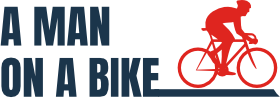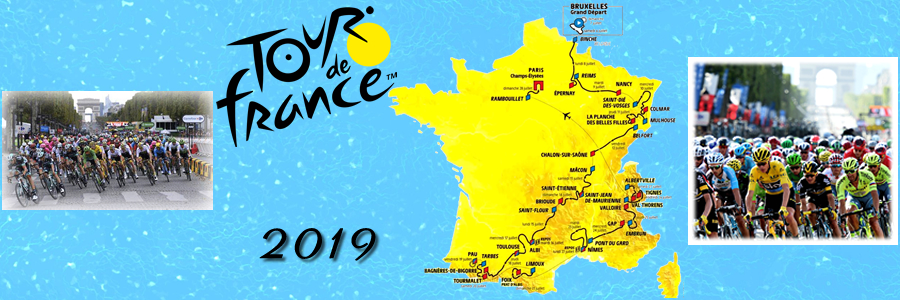The 2019 Tour de France was the 106th edition of the world’s most famous cycling race.
The 3,365.8 km (2,091 ml) long race consisted of 21 stages, starting in the Belgian capital of Brussels on 6 July, before racing through France and finishing with a mad sprint on the Champs-Élysées in Paris on 28 July.
A total of 176 riders from 22 teams participated in the race. As is usual all 18 of the UCI World Teams are committed to enter a team, and 4 teams from the ranks of the Pro Continental Teams were invited to also send a team.
This year 3 French Teams and 1 Belgian Team were invited. (Cofidis; Wanty-Gobert; Total Direct Energie and Arkea-Samsic).
Each squad was allowed a maximum of eight riders, resulting in a start list total of 176 riders. Of these, 33 were competing in their first Tour de France.
The riders came from 30 countries. Six countries had more than ten riders in the race: France (43), Belgium (21), Italy (15), Spain (13), Germany (11) and the Netherlands (11).
The average age of riders in the race was just over 29 years old, ranging from the 21-year-old Jasper Philipsen (UAE Team Emirates) to the 39-year-old Lars Bak (Team Dimension Data).
Pre-race favourite, both in the media, as well as with the bookies, was four-time Tour winner Chris Froome (Team Ineos).
However, he had to withdraw with multiple injuries following his crash at the Critérium du Dauphiné three weeks before the Tour. Although he was third overall behind teammate and winner Geraint Thomas in the previous year’s Tour, Froome was considered the 2019 Tour favourite before his crash.
Another major absentee was the 2018 Tour runner-up Tom Dumoulin (Team Sunweb), who missed the Tour with a knee injury he picked up at the Giro d ‘Italia.
With their absence, the Tour was expected to be a more open race, with Geraint Thomas and Egan Bernal (both Team Ineos) as the leading contenders.
Their closest rivals were thought to be Romain Bardet (AG2R La Mondiale), Jakob Fuglsang (Astana), Steven Kruijswijk (Team Jumbo–Visma) and Mikel Landa (Movistar Team).
After celebrating his 2018 Tour victory, Thomas was not race fit at the start of the 2019 season. His only result before the Tour was a third-place overall at the Tour de Romandie in early May.
In June he abandoned the Tour de Suisse following a crash, and required recovery time, which put his ability to perform at the Tour in doubt.
Bernal made his Tour debut in 2018 riding as a domestique (leader’s assistant) for Froome and Thomas, who are ten years his senior.
His major wins of the season up to the Tour were the Paris–Nice stage race before his injury and the Tour de Suisse on his return.
On 30 May 2017, the ASO announced that Brussels would host the 2019 edition’s opening stages (known as the Grand Départ), honouring one of the Tour’s most successful riders, Belgian Eddy Merckx, on the 50th anniversary of his first of five overall victories.
It also marked 100 years since the race leader’s yellow jersey was first seen at a Tour.
There were 21 stages in the race, covering a total distance of 3,365.8 km (2,091 mi).
There were two time trial events, Stage 2’s 27.6 km (17 mi) Team Time Trial and Stage 13’s 27.2 km (17 mi) individual time trial.
Of the remaining nineteen stages, seven were officially classified as flat, five as hilly and seven as mountainous.
The longest mass-start stage was stage 10, at 217.5 km (135 mi), and the shortest was stage 14, at 117.5 km (73 mi).
The overall general classification was won for the first time by a Latin American rider, Egan Bernal of Team Ineos. His teammate and 2018 Tour winner Geraint Thomas finished second (at 1min 11sec behind) while Steven Kruijswijk (Team Jumbo–Visma) came in third (at 1min 31sec).
The points classification was won by Bora–Hansgrohe’s Peter Sagan for a record seventh time, with Romain Bardet of AG2R La Mondiale winning the mountains classification.
Bernal also won the young rider classification.
Overall, a good race with lots of exciting riding.

